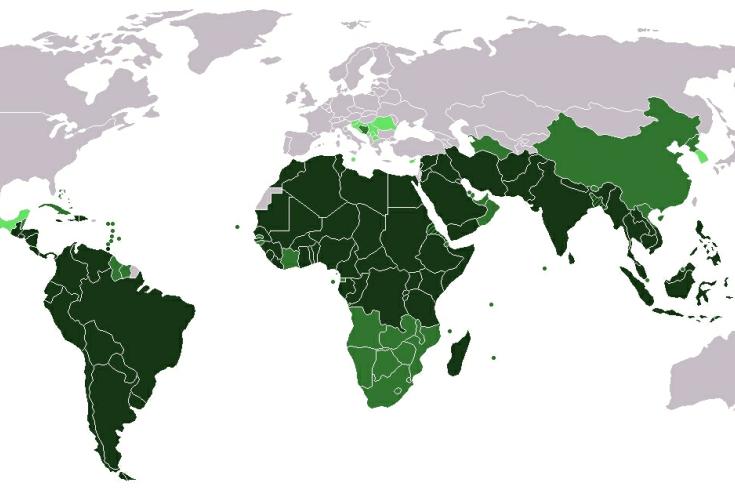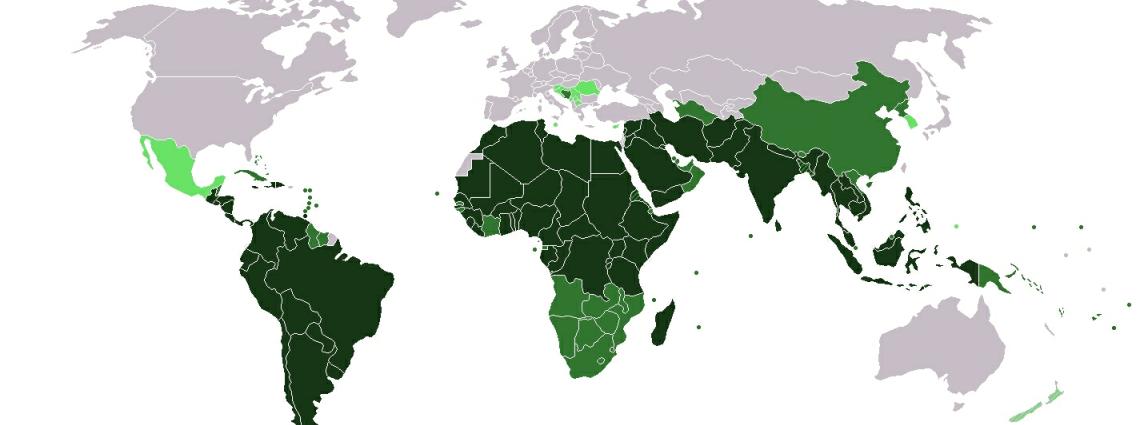CTBTO's Executive Secretary Emphasizes G77 Active Engagement with CTBT Issues
The G77 was established in June 1964 through a joint declaration setting out its members’ common objectives and has since expanded to 130 countries, making up the vast majority of countries in Africa, Asia, Latin America, and the Middle East. The Group’s institutional structure encompasses seven chapters in New York, Geneva, Nairobi, Paris, Rome, Vienna, and Washington. The work of the G77 is coordinated by a Chairperson, who provides support for the preparation of meetings and serves as its institutional memory.

Founding members of G77 in dark green (except those that have since left). Current member countries in dark and medium green. Former member countries in light green. Updated March 28, 2008.
“We in the […] CTBTO are grateful for the Group’s active engagement with CTBT issues. We shall continue to do so as we progress, in partnership, towards entry into force,” stressed Tóth. “This is a moment when we must do our utmost to search for common solutions to our common problems in a multilateral framework.”
29 Jan 2010
